Biography
Verner Panton's designs represent new lifestyles, a high degree of experimentation, and thus a radical break with existing traditions.
The defining element of his designs has always been color. 'Color', Panton said, 'is more important than form'.Verner Panton became one of the leading European designers in the 1960s. With a multitude of original designs, he was thus able to advance the development of modern design on an international level. If you think of the 'Panton Chair' that is still in production today, the timeless 'Flower Pots' of the 1960s or functional, sculptural objects such as the 'Living Tower', you realize the impact of his designs.
The Danish designer's career began in 1951, after completing his studies in architecture at the Royal Academy of Art in Copenhagen. Throughout his life, Verner Panton described himself as a designer and an architect, which can also be seen in his work, as there are strong parallels between the two fields. The designer always had a tendency towards utopian experiments with new materials for which he usually chose a geometric language of forms. He embedded this approach in a strong systematic idea. His design of the Spiegel publishing house in Hamburg and his contribution to the 'Visiona II' exhibition at the Cologne Furniture Fair in 1970 are important examples of this. The totality of his design ideas in large spatial concepts remained for a long time his outstanding feature. It was not until the mid-1960s that other designers, including Joe Colombo and Pierre Paulin, tried their hand at comparable radical practices.
Read more ...Read less ...Objects by Verner Panton
-
Sold
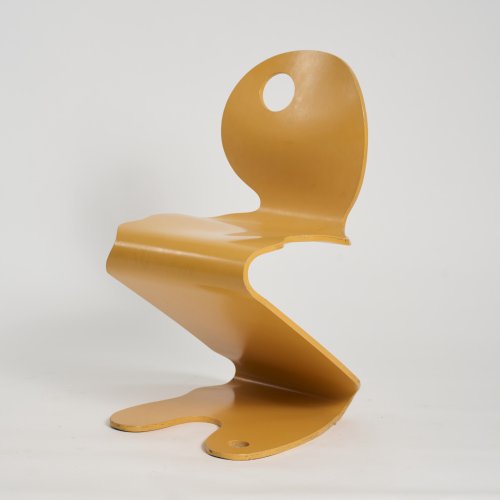
-
Sold
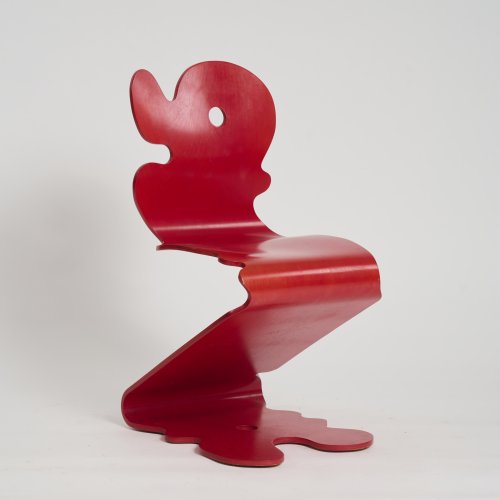
-
In the post auction sale
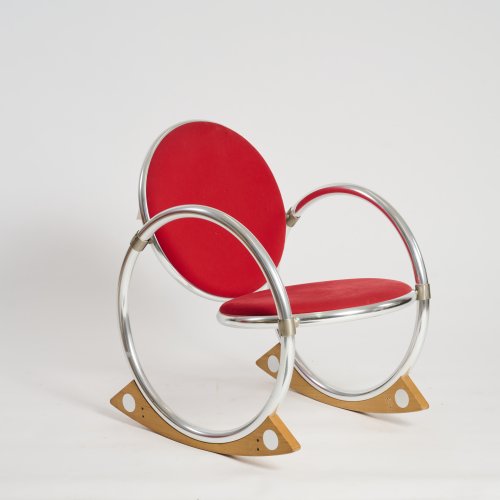
-
In the post auction sale

Verner Panton Sommer, August für Thonet, Frankenberg / for Thonet, Frankenberg
'S' - '275' chair, 1965
Reserve price: 1,900 €
-
Sold
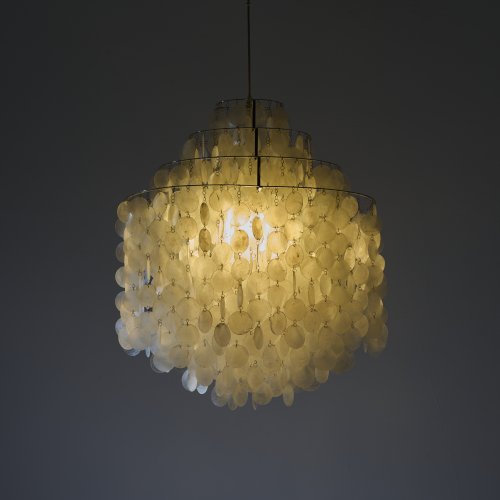
-
Sold
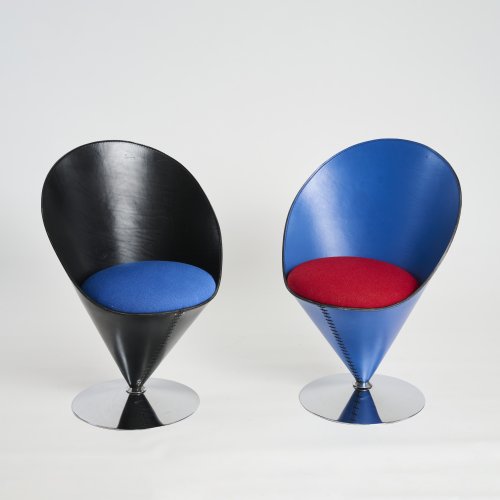
-
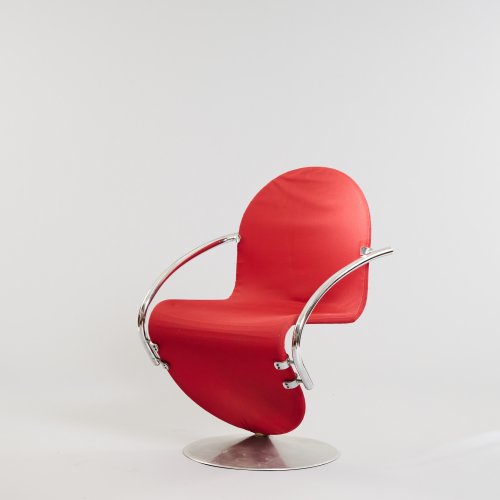
Verner Panton Hansen, Fritz, Allerød
'123' armchair, 1973/74 (design)
Estimate: 700 € - 800 €
Unsold lot
-
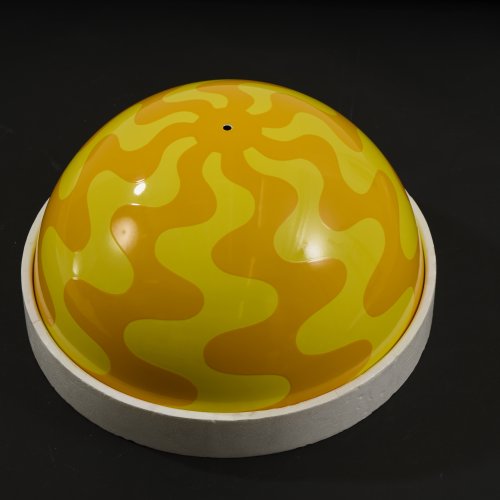
Verner Panton Poulsen, Louis, Kopenhagen
Large 'Flower pot' ceiling light, 1971 (design)
Estimate: 2,200 € - 2,500 €
Unsold lot
-
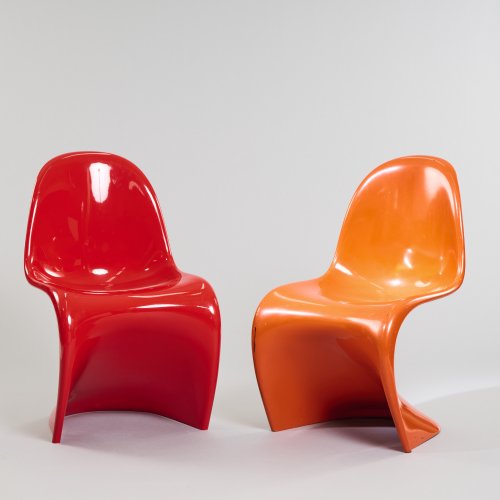
Verner Panton Vitra, Birsfelden
Two 'Panton' chairs, 1962/67 (design)
Estimate: 600 € - 700 €
Unsold lot
-
Sold
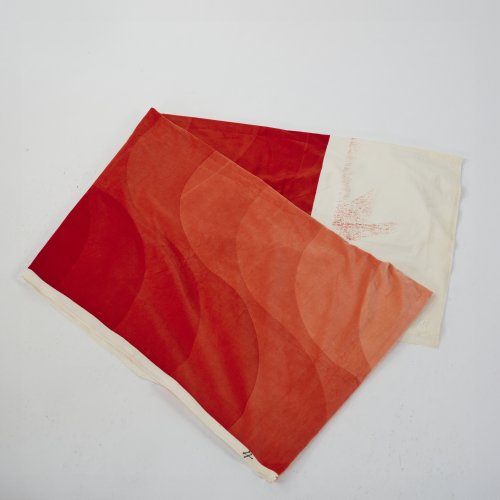
-
Sold
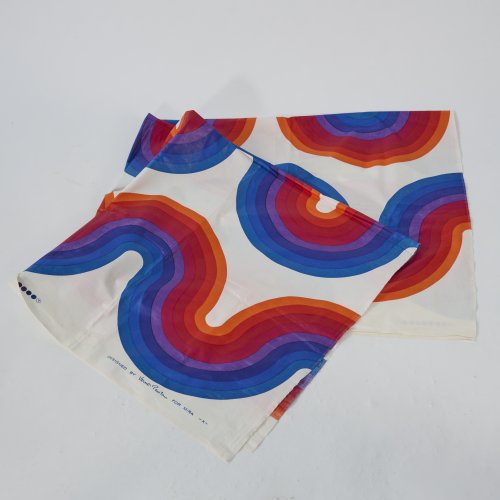
-
Sold
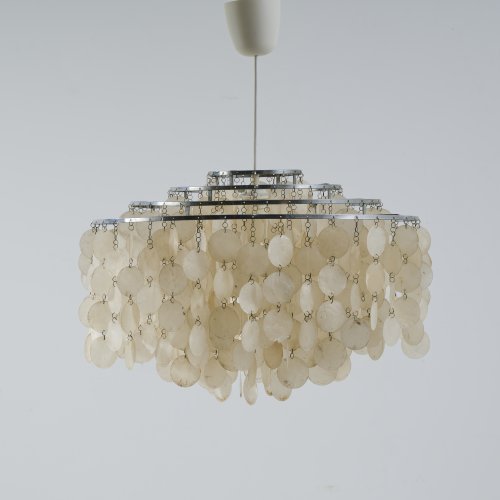
-
Sold
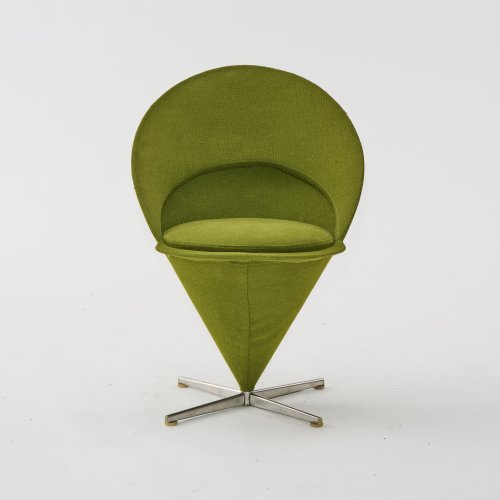
-
Sold

Verner Panton Mira-X, Suhr.
Four curtains 'Kurve' and four seat cushions 'Quadrat', 1969
Hammer Price: 2,700 €
-
Sold
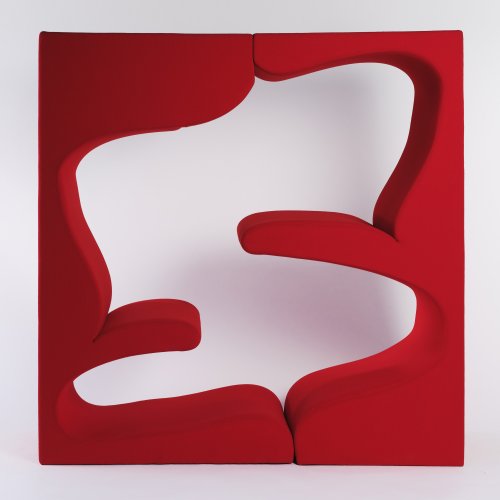
-
Sold
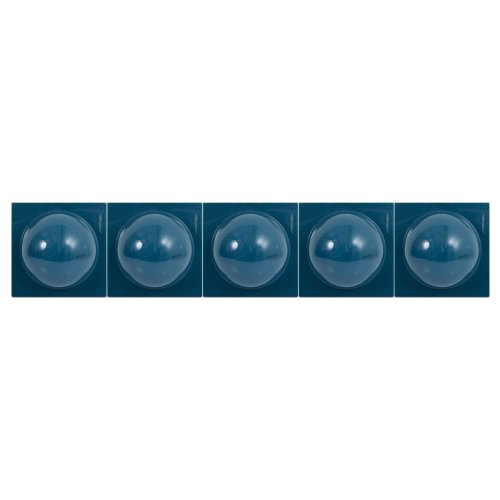
Verner Panton Horlacher, Schweiz (zugeschrieben/attr.)
Five wall appliques for the 'Visiona II', 1969/70
Hammer Price: 2,500 €
-
Sold
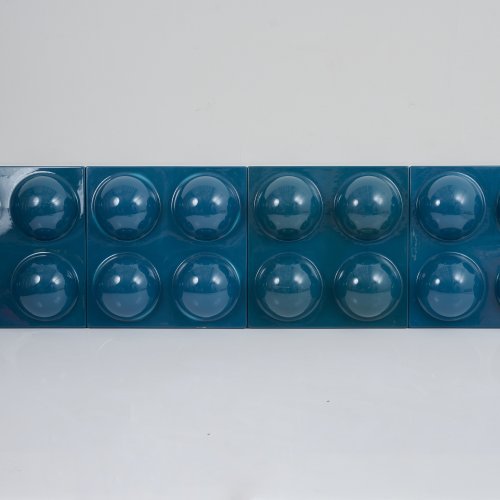
Verner Panton Horlacher, Schweiz (zugeschrieben/attr.)
Four wall appliques for the 'Visiona II', 1969/70
Hammer Price: 2,000 €
-
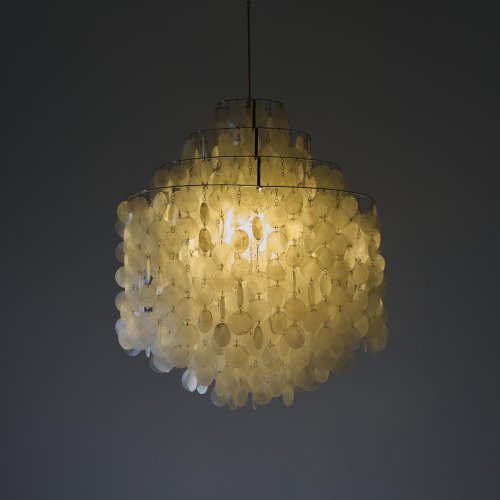
-
Sold
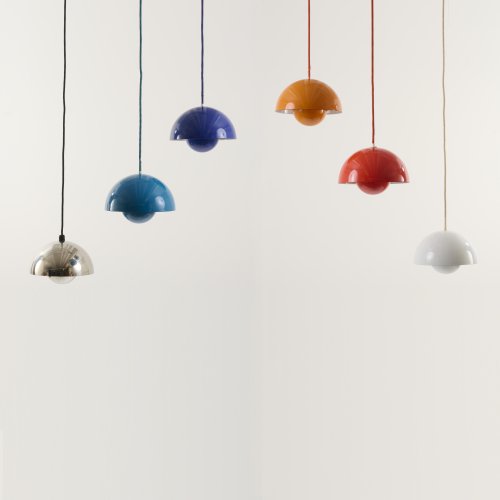
-
Sold
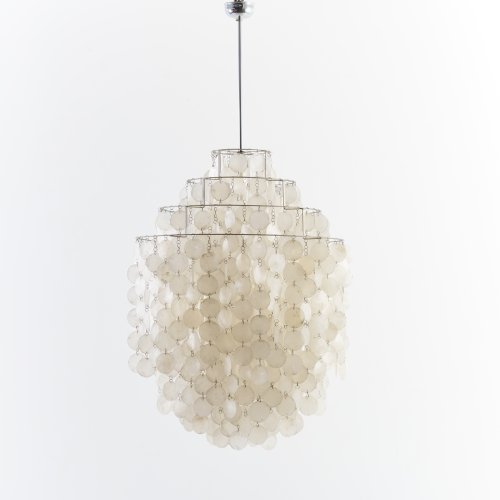
-
Sold
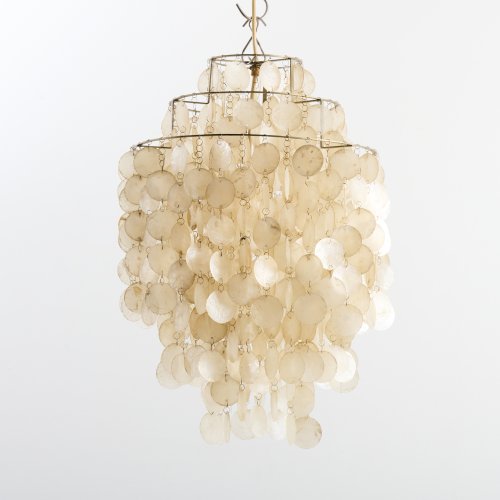
-
Sold
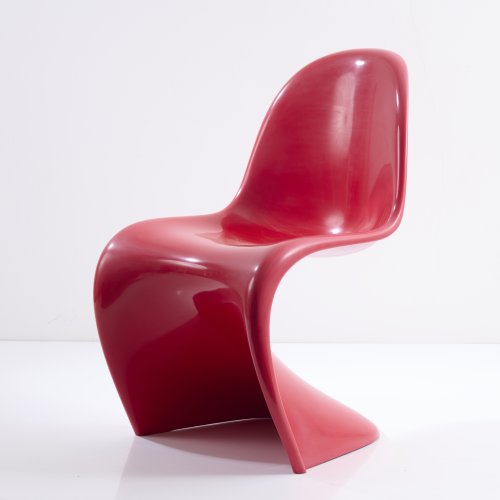
-
Sold
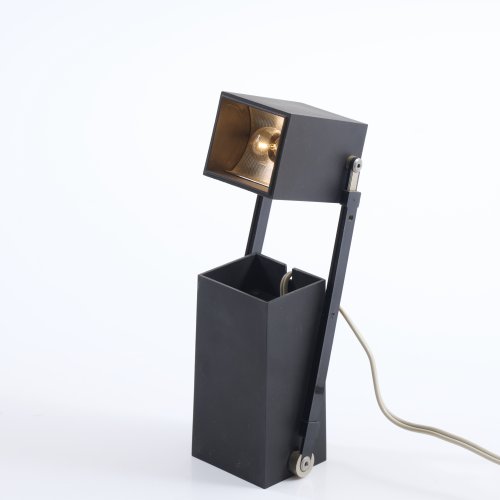
Verner Panton, Bent Gantzel Boysen Poulsen, Louis, Kopenhagen
'LamPetit' table light, 1966
Hammer Price: 180 €
-
Sold
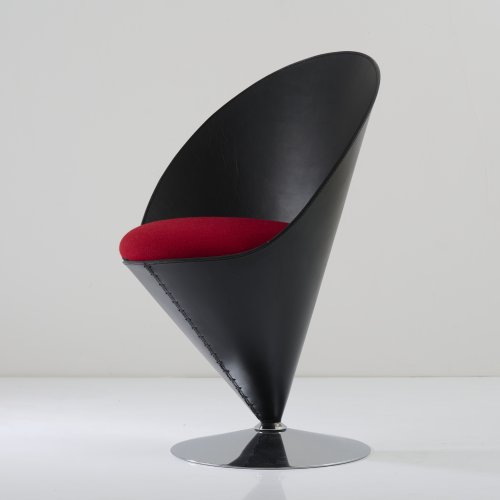
-
Sold
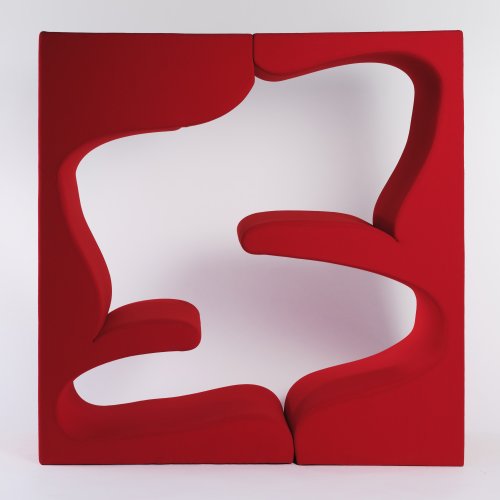
-
Sold
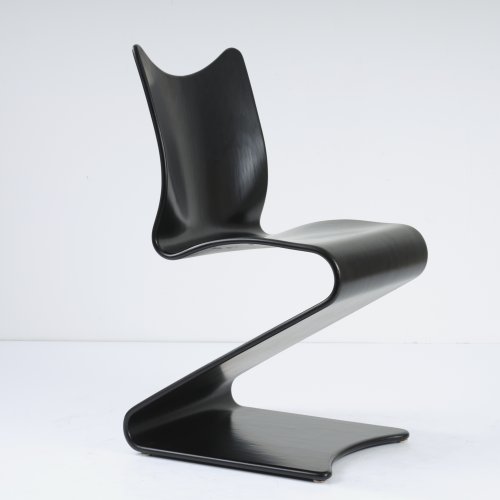
-
Sold
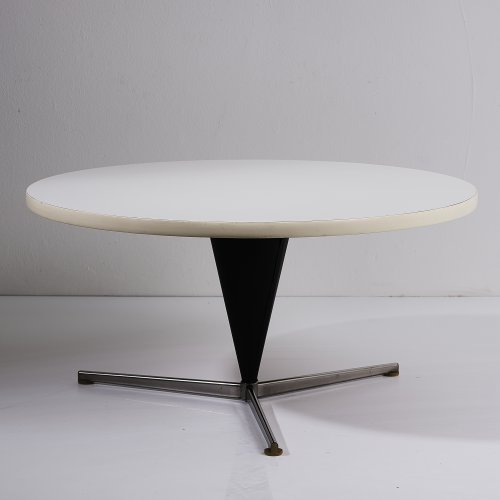
-
Sold
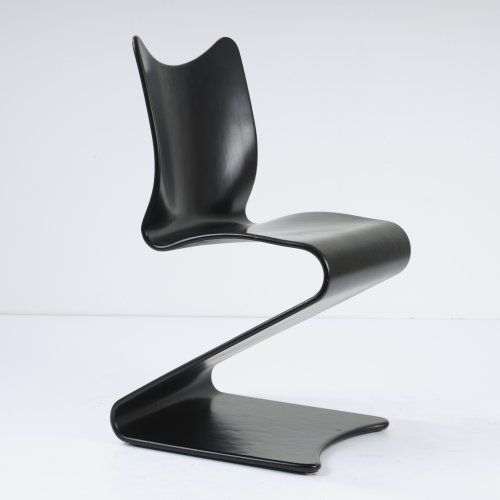
-
Sold
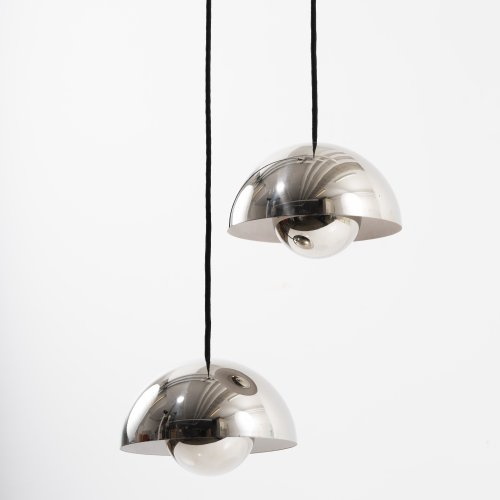
-
Sold
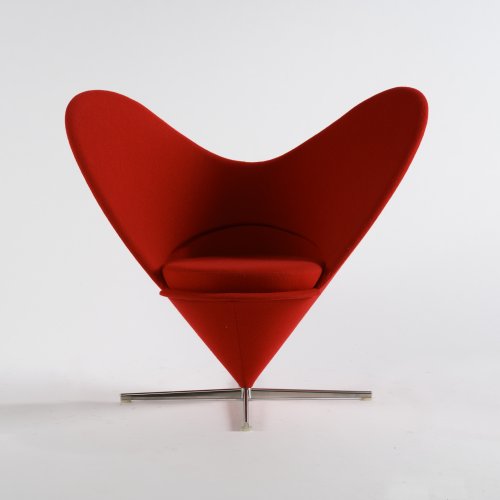
-
Sold
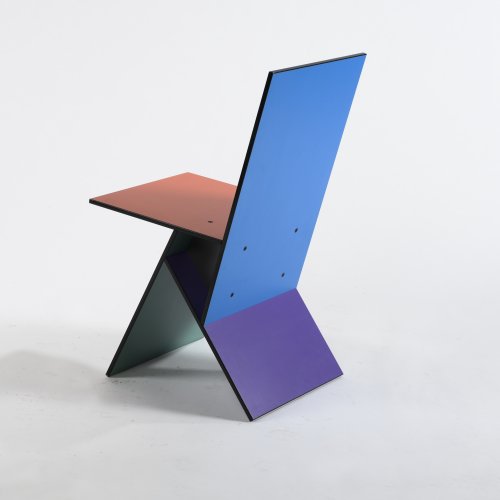
-
Sold
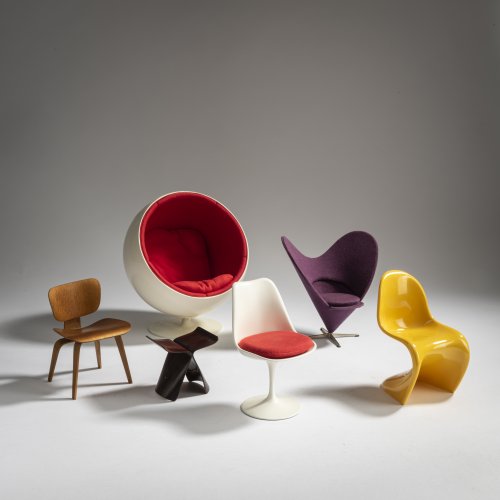
Eero Aarnio, Charles Eames, Ray Eames, Verner Panton, Eero Saarinen, Sori Yanagi Vitra Design, Weil am Rhein
6 miniature seating furniture
Hammer Price: 1,800 €
-
Sold
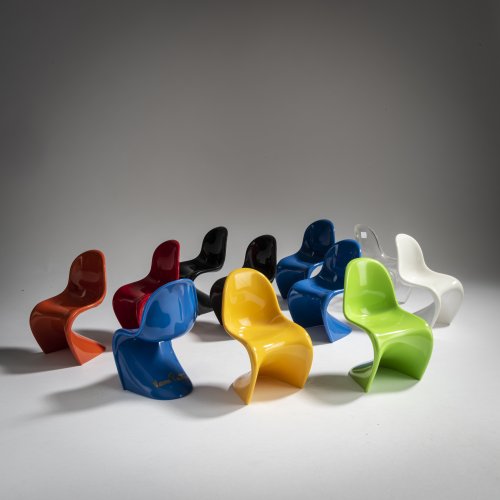
-
Sold
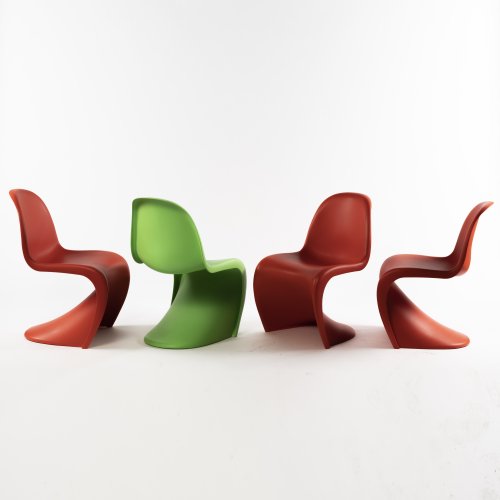
-
Sold
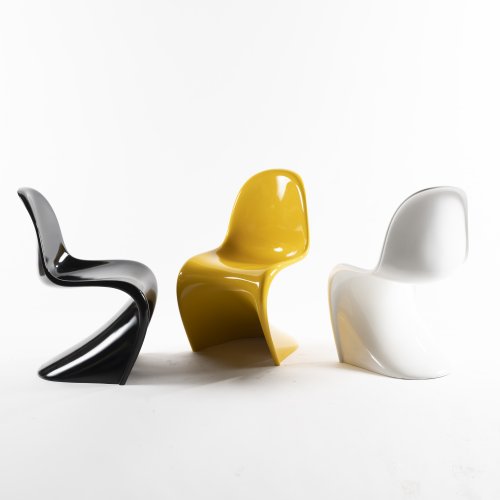
-
Sold
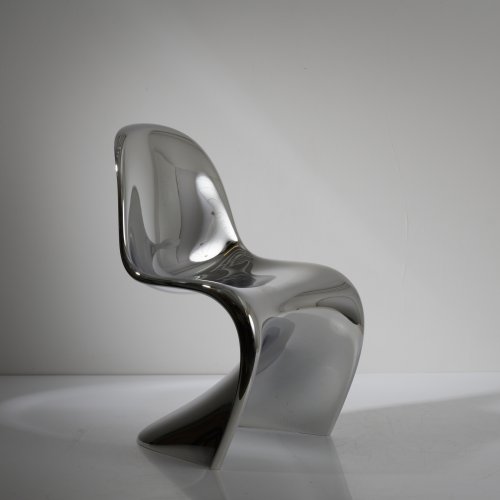
Verner Panton Vitra Design, Weil am Rhein
'Panton Chair' 'Chrome Classic', 1962/ 67
Hammer Price: 1,000 €
-
Sold
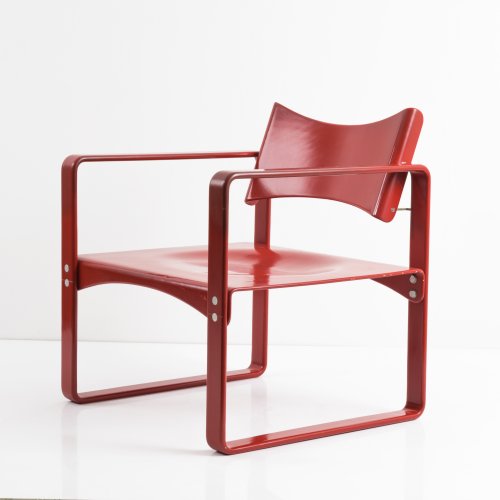
-
Sold
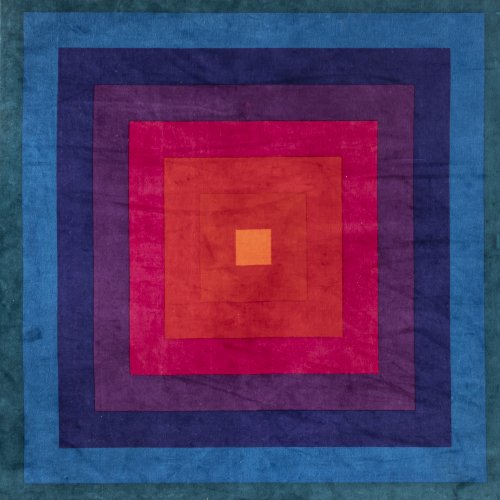
-
Sold
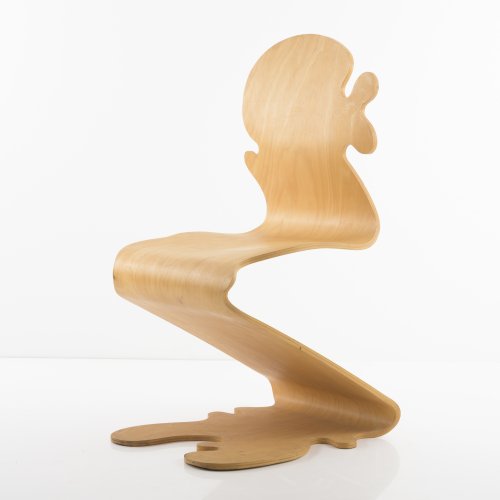
-
Sold
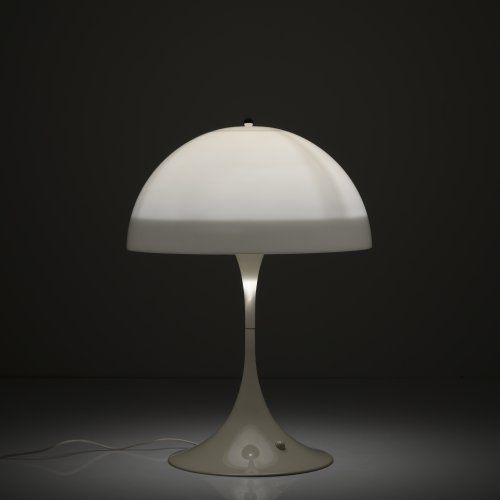
-
Sold
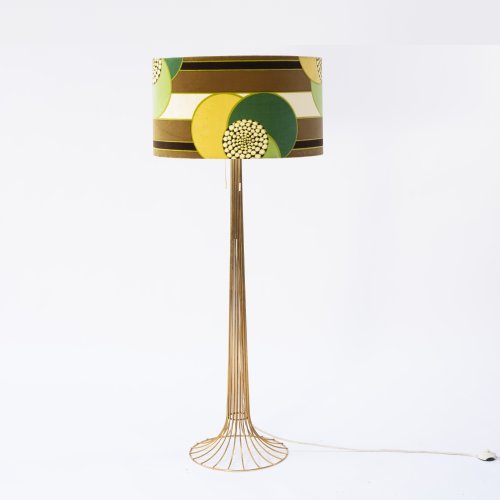
Verner Panton (in the style of) Fritz Hansen, Allerød (zugeschrieben)
Floorlamp, 1967
Hammer Price: 450 €
-
Sold
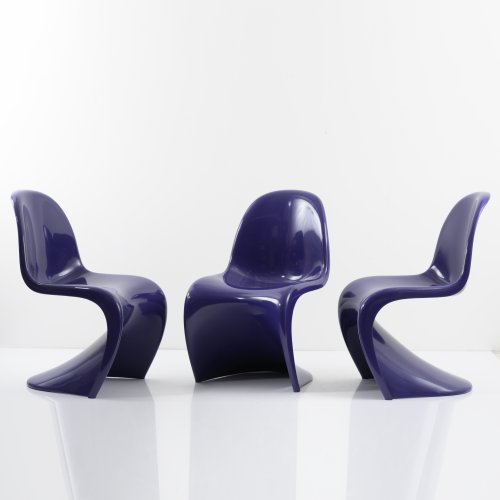
Verner Panton Herman Miller Fehlbaum Production, Weil am Rhein
Three 'Panton' chairs, 1962/67
Hammer Price: 1,300 €
-
Sold
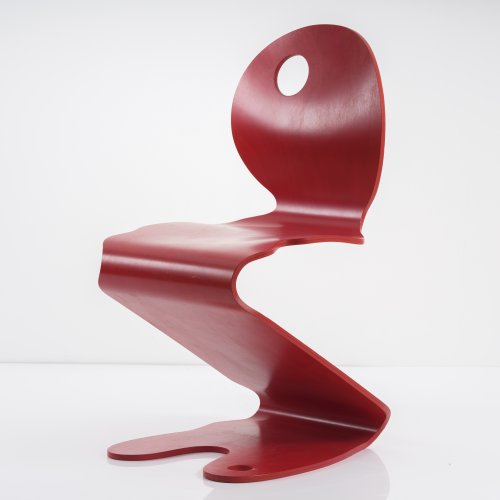
-
Sold
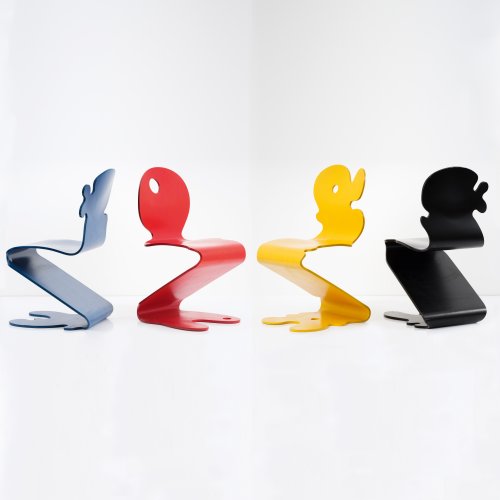
-
Sold
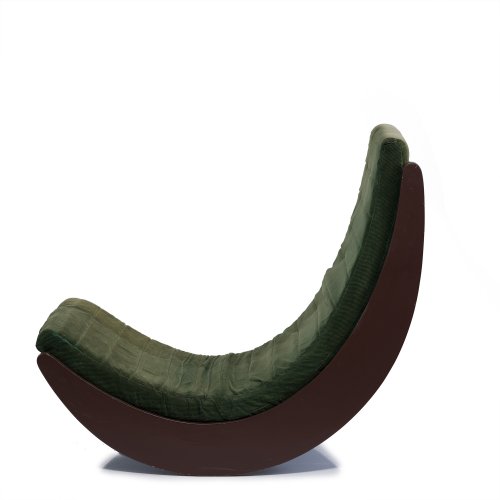
-
Sold
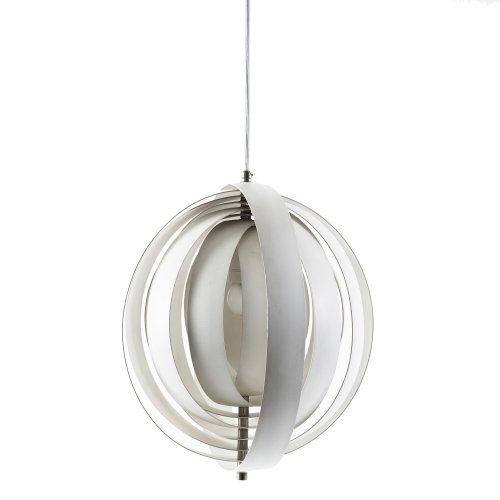
-
Sold
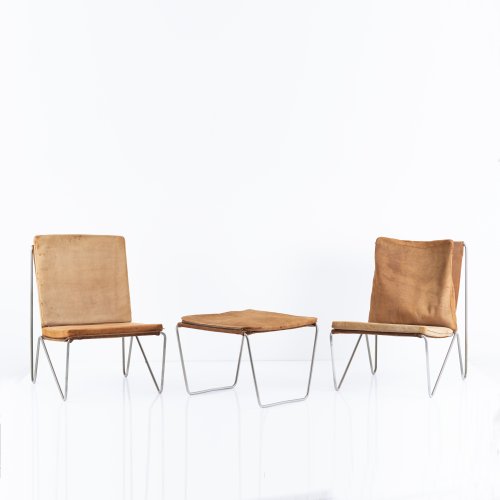
Verner Panton Hansen, Fritz, Kopenhagen
Set of two lounge chairs and one stool 'Bachelor chair' - '3350', 1953
Hammer Price: 950 €
-
Sold
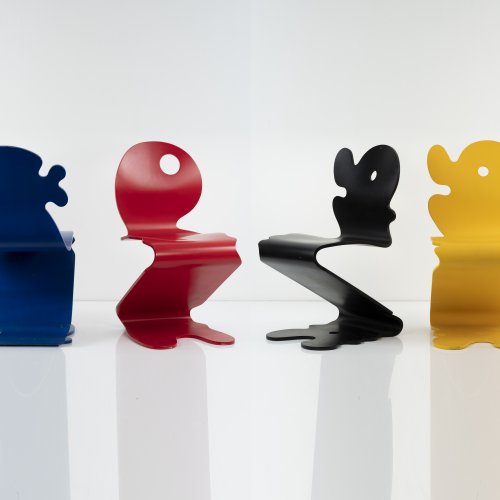
-
Sold
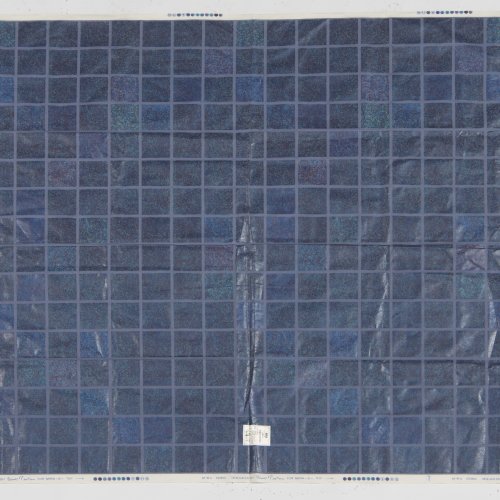
Verner Panton Mira-X, Suhr
Set of two swatches of fabric, 'Mira Orion' and 'Mira Cinna' - 'MIRA QUARTO', 1985
Hammer Price: 400 €
-
Sold
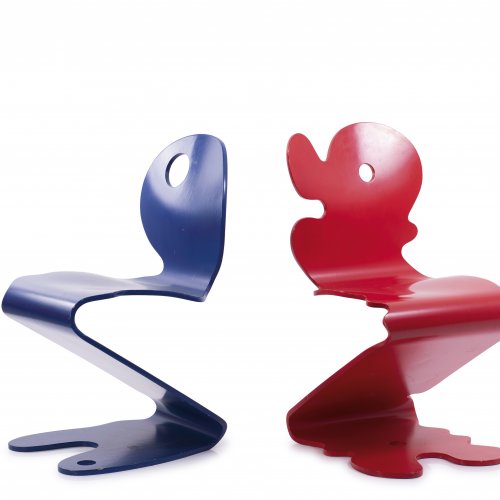
-
Sold
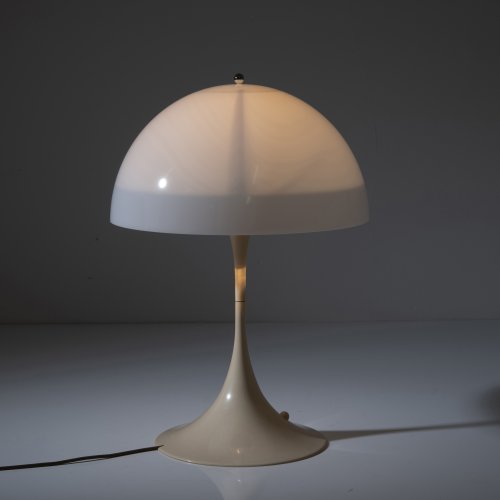
-
Sold
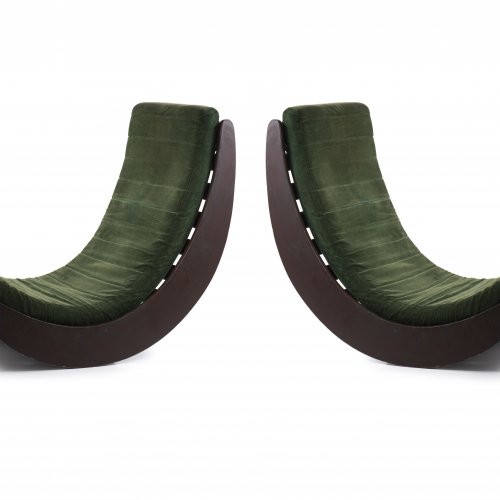
-
Sold
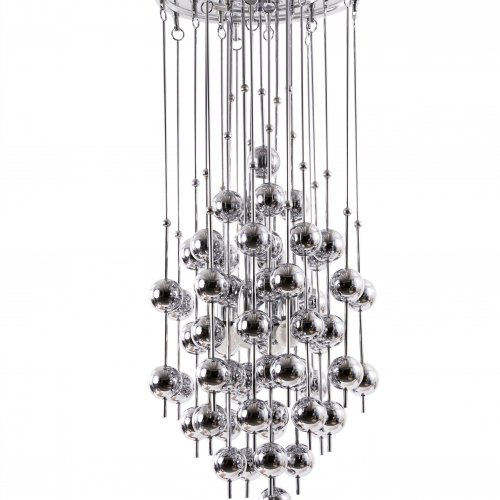
Verner Panton (in the style of) Lüber AG, Basel (zugeschrieben)
'Ball Pendant Lamp', 1970s
Hammer Price: 2,600 €
-
Sold
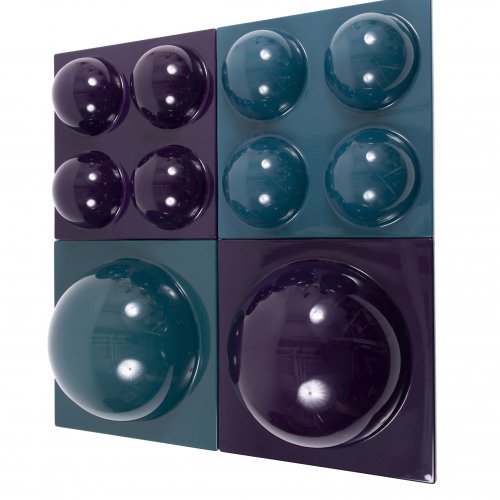
Verner Panton Horlacher, Schweiz (zugeschrieben)
Four 'Visiona II' wall panels, 1969/70
Hammer Price: 3,000 €
-
Sold
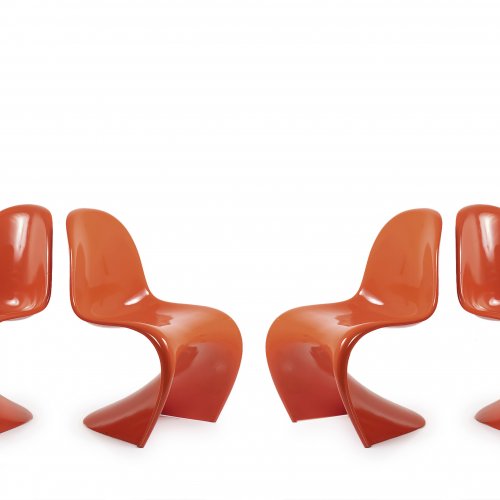
-
Sold
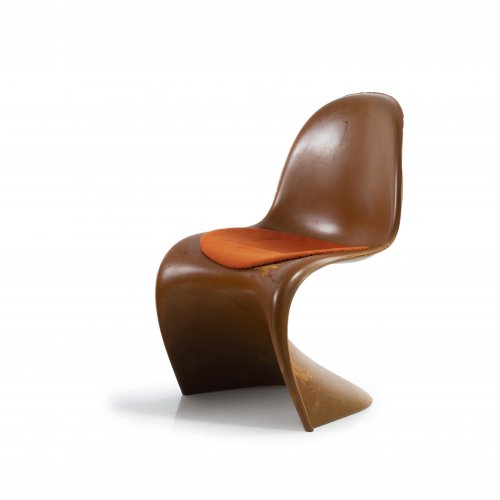
-
Sold
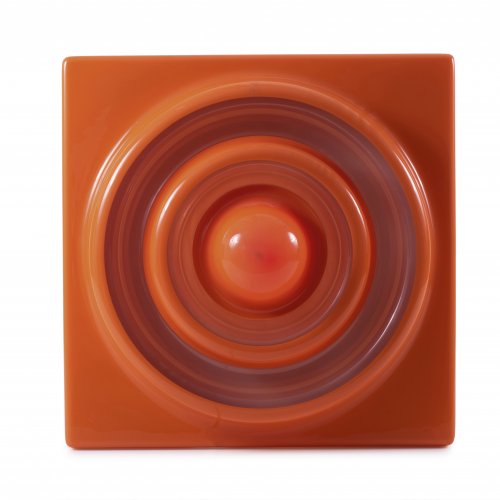
Verner Panton Poulsen, Louis, Kopenhagen
'Ring-Leuchte' wall lamp for the 'Visiona 2', 1969
Hammer Price: 2,600 €
-
Sold
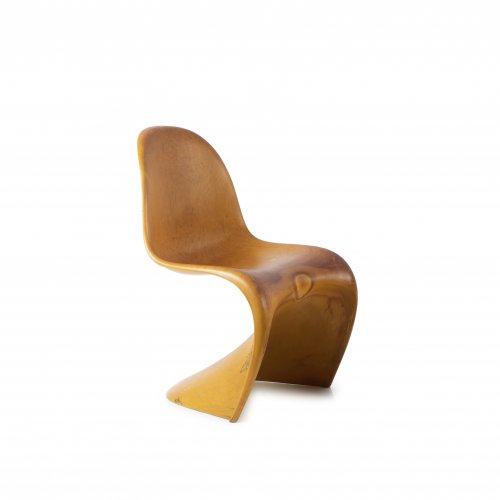
-
Sold
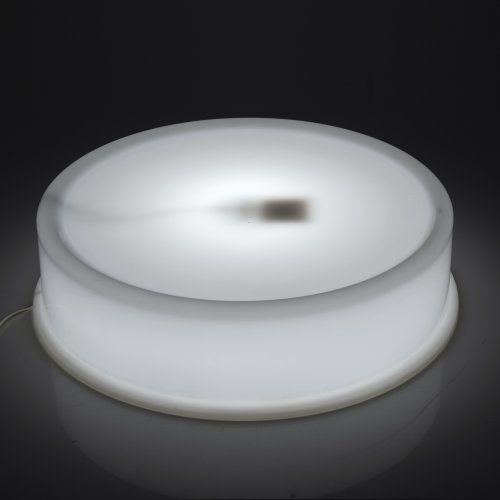
-
Sold
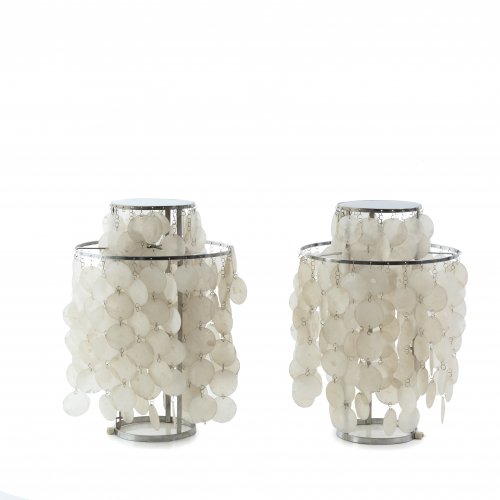
-
Sold
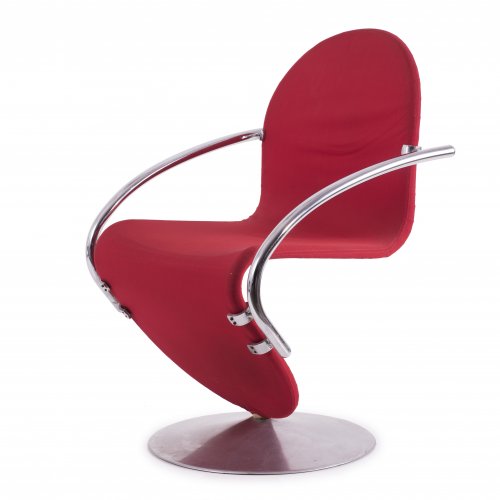
-
Sold
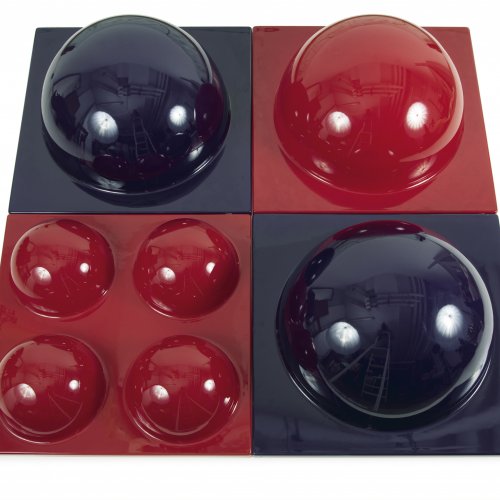
Verner Panton Horlacher, Schweiz (zugeschrieben)
Four 'Visiona II' wall panels, 1969/70
Hammer Price: 3,200 €
-
Sold
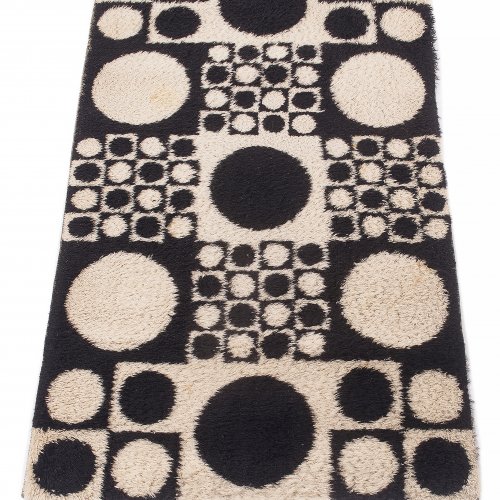
-
Sold

-
Sold
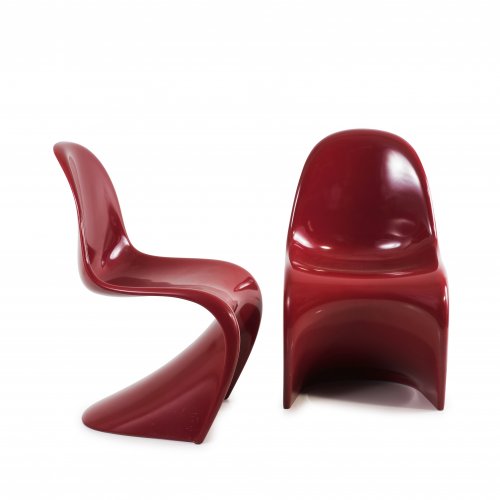
-
Sold
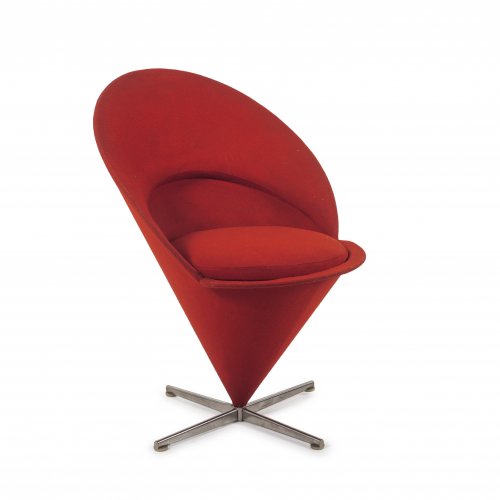
-
Sold
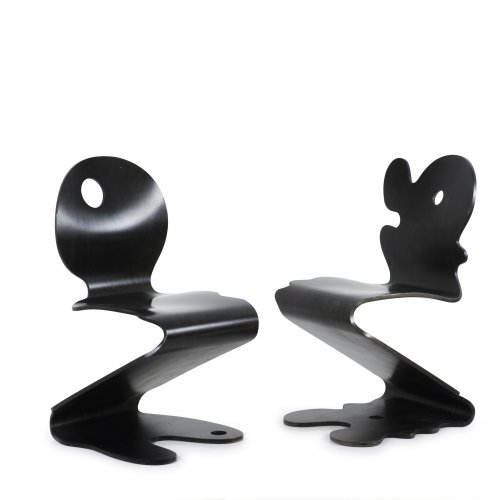
-
Sold
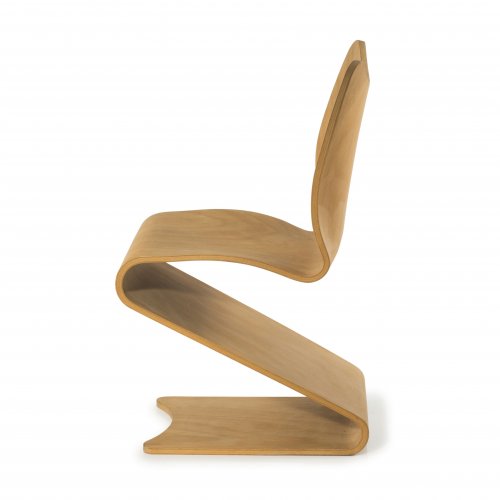
Verner Panton Sommer, A, Plüderhausen, für Thonet, Frankenberg
'S chair', 1965
Hammer Price: 2,000 €
-
Sold
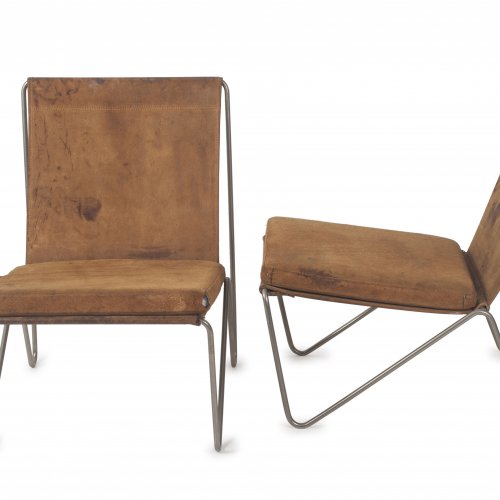
-
Sold
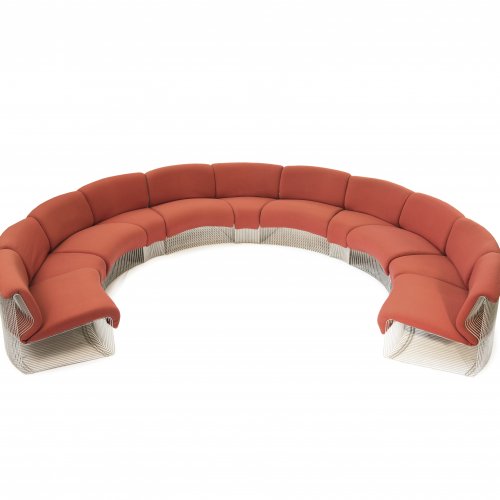
-
Sold
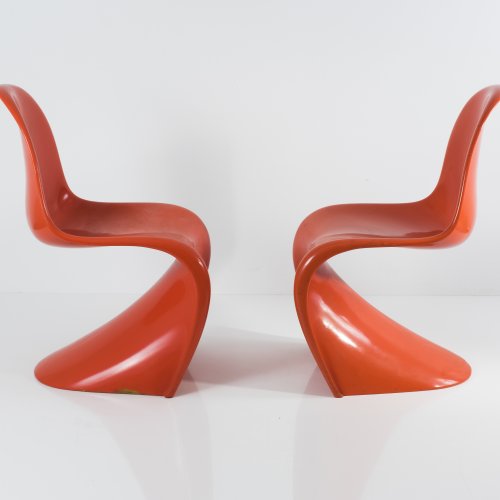
Verner Panton Miller, Herman, Zeeland; Fehlbaum Production, Weil am Rhein
Two 'Panton' chairs, 1962/67
Hammer Price: 400 €
-
Sold
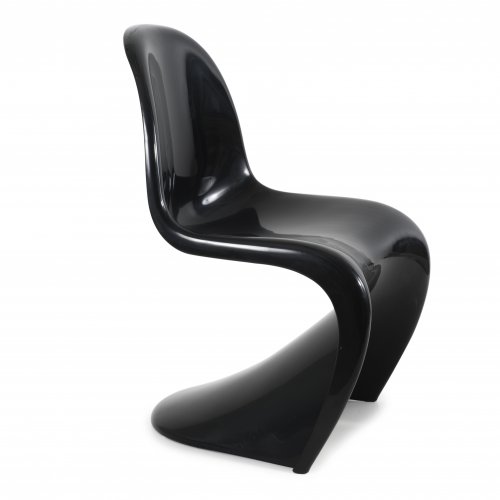
Verner Panton Miller, Herman, Zeeland; Fehlbaum Production, Weil am Rhein
'Panton' chair, 1962/67
Hammer Price: 150 €
-
Sold
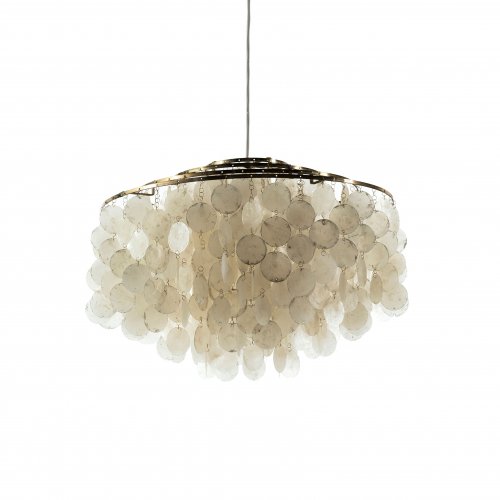
-
Sold
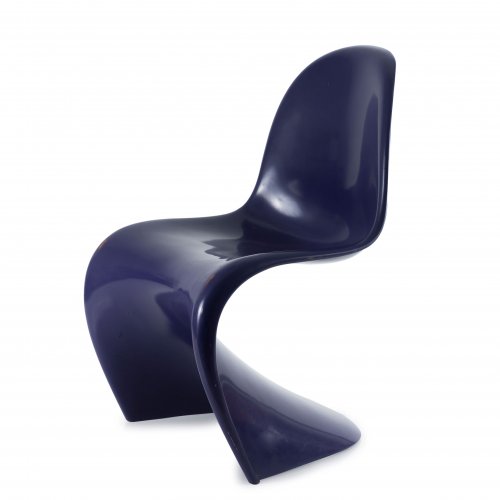
-
Sold
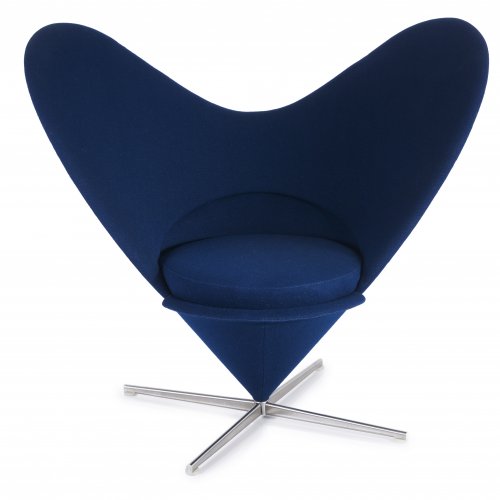
-
Sold
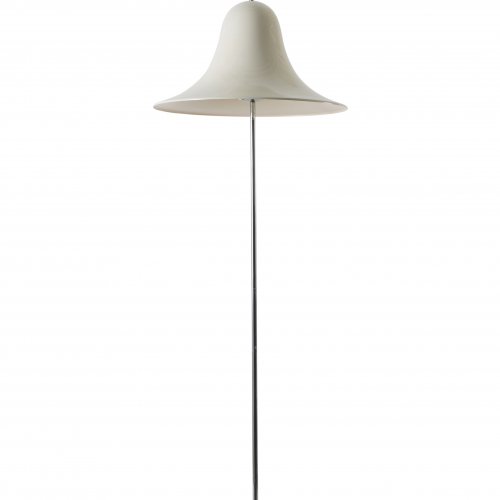
-
Sold
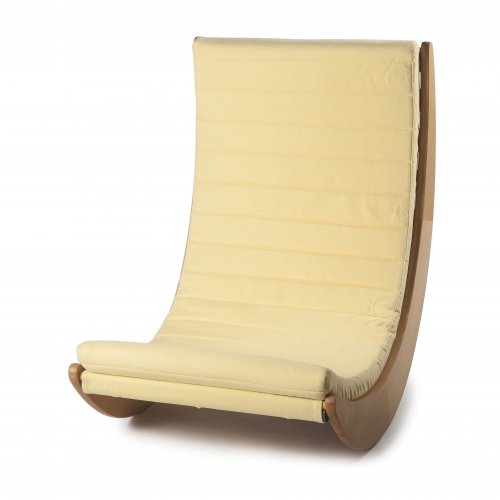
-
Sold
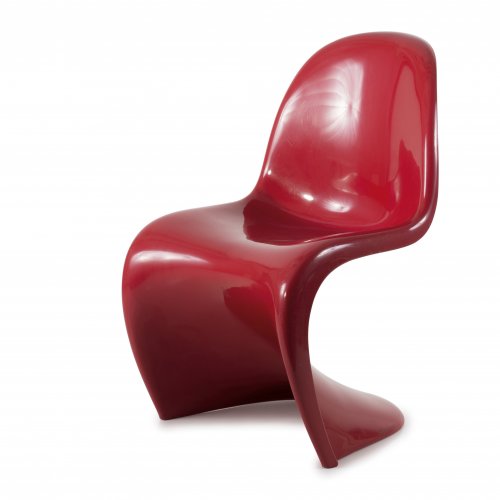
Verner Panton Miller, Herman, Zeeland; Fehlbaum Production, Weil am Rhein
'Panton' chair, 1962/67
Hammer Price: 240 €
-
Sold
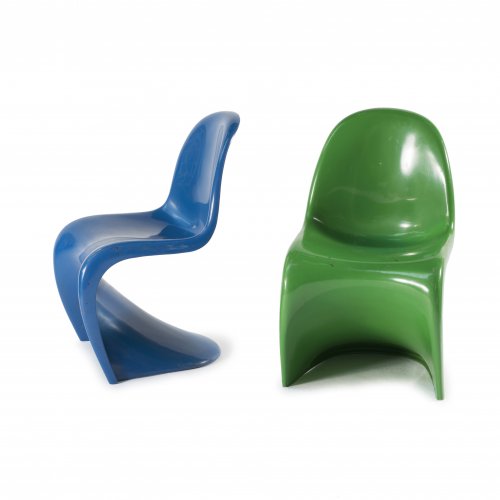
Verner Panton Fehlbaum Production, Weil am Rhein; Herman Miller, Zeeland
Two 'Panton' chairs, 1962/67
Hammer Price: 500 €
-
Sold
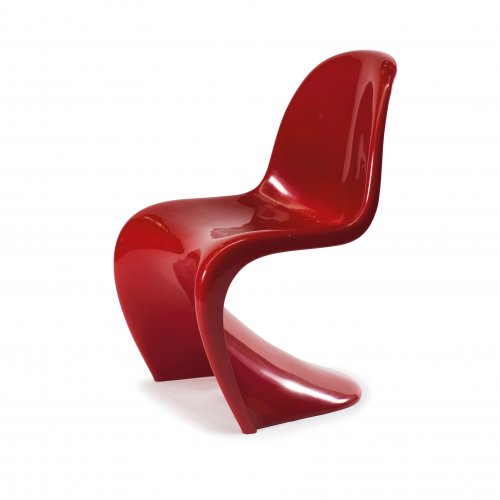
-
Sold
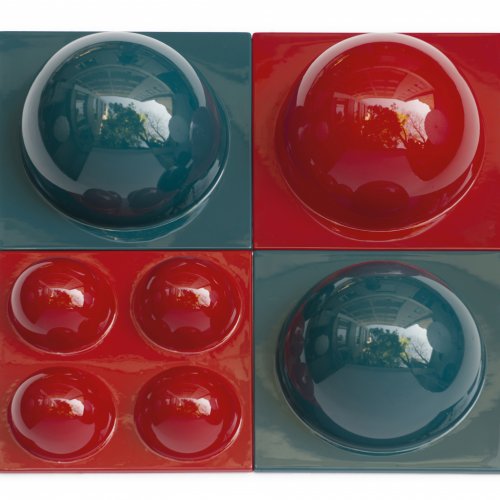
Verner Panton Horlacher, Schweiz (zugeschrieben)
Four wall panels 'visiona II', 1969/70
Hammer Price: 2,000 €
-
Sold
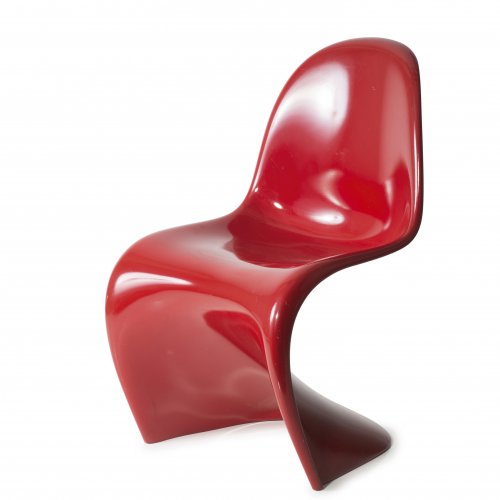
-
Sold
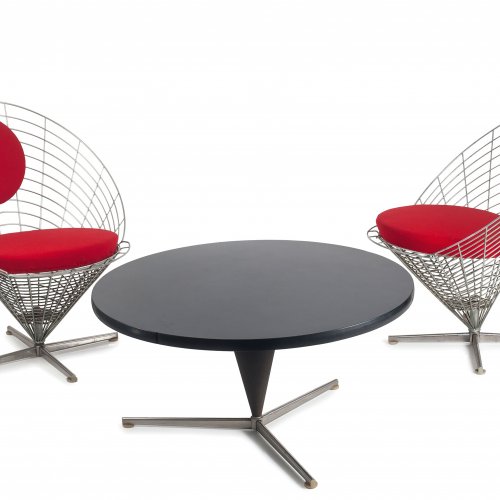
Verner Panton Plus Linje, Kopenhagen
Two 'Wire Cone' chairs and a 'cone' table, 1958
Hammer Price: 2,800 €
-
Sold
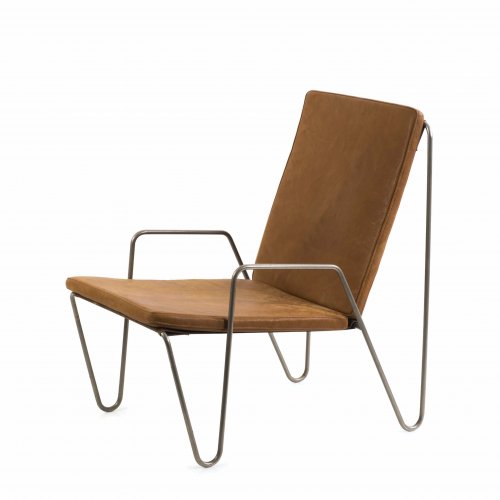
-
Sold
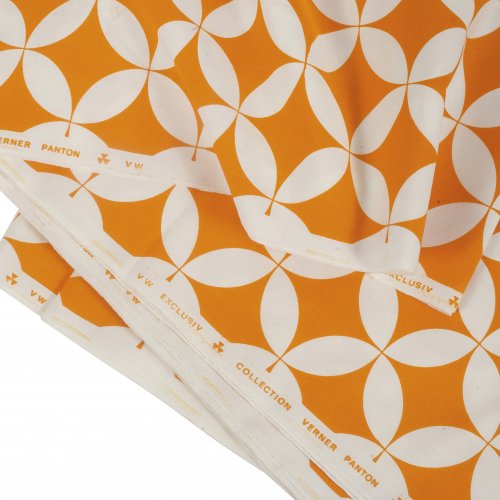
-
Sold
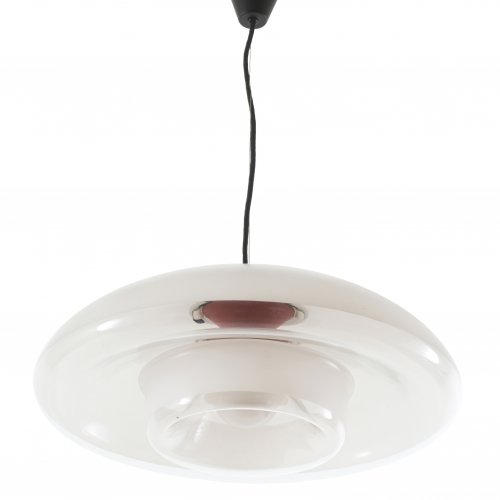
-
Sold
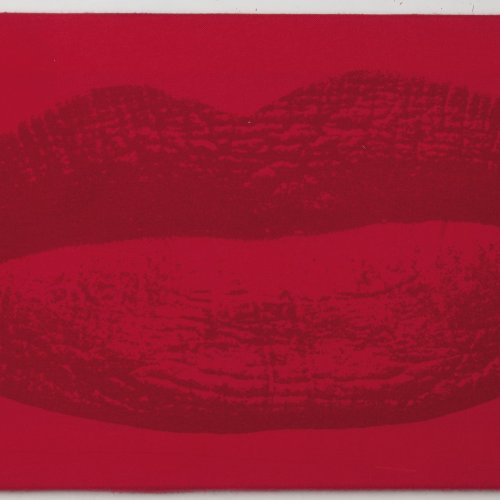
Verner Panton Bayer AG, Leverkusen
'Lips' fabric for 'Visiona 0', from the 'Anatomical Designs' collection, 1968
Hammer Price: 500 €
-
Sold
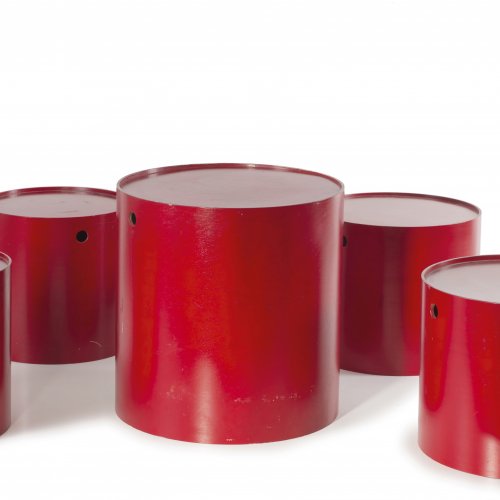
Verner Panton Sommer, August, Plüderhausen; Bisterfeld & Weiss, Kelkheim
Partyset table and four stools, 1965
Hammer Price: 1,300 €
-
Sold
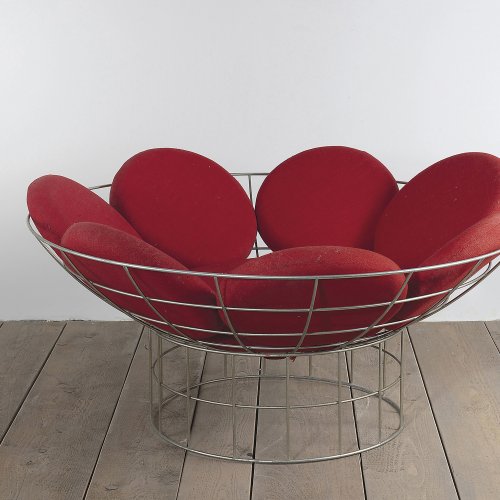
-
Sold
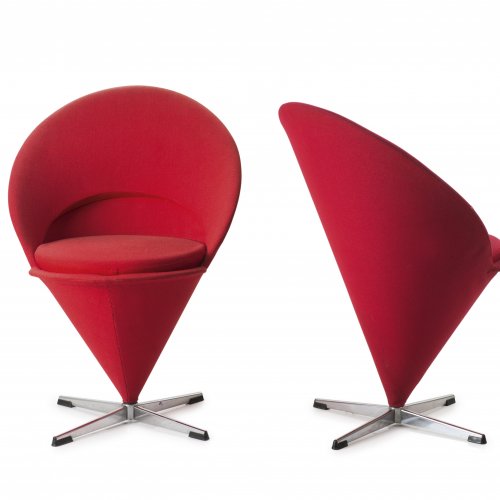
-
Sold
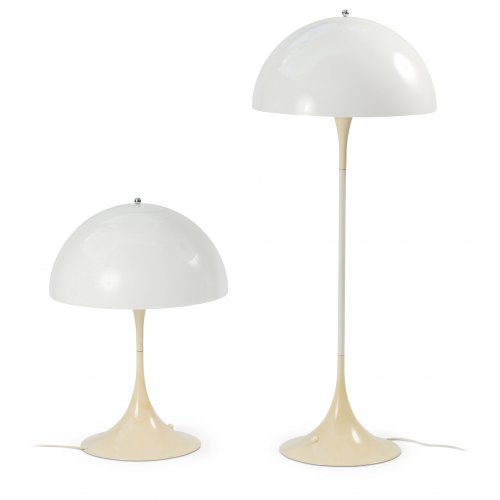
Verner Panton Poulsen, Louis, Kopenhagen
'Panthella' table light and floor light, 1971
Hammer Price: 400 €
-
Sold
-
Sold
-
Sold
Verner Panton Poulsen, Louis, Kopenhagen
Large 'Flower pot' ceiling light, 1971
Hammer Price: 1,500 €
-
Sold
Verner Panton Poulsen, Louis, Kopenhagen
'Ring' sconce for the 'Visiona 2', 1969
Hammer Price: 1,200 €
-
Sold
-
Sold
-
Sold
-
Sold
-
Sold
-
Sold
Verner Panton DK Ikea, Älmhult; Kellco, Schweiz
Pair of 'Vilbert' chairs, 1993/94
Hammer Price: 700 €
-
Sold
-
Sold
-
Sold
-
Sold
-
Sold
-
Sold
-
Sold
Verner Panton DK Horlacher, Schweiz (zugeschrieben)
Four wall panels 'visiona II', 1969/70
Hammer Price: 2,000 €
-
Sold
Verner Panton Thonet, Frankenberg
'S420 C' couch with table and two 'S420 H' easy chairs
Hammer Price: 8,000 €
-
Sold
-
Sold
-
Sold
-
Sold
